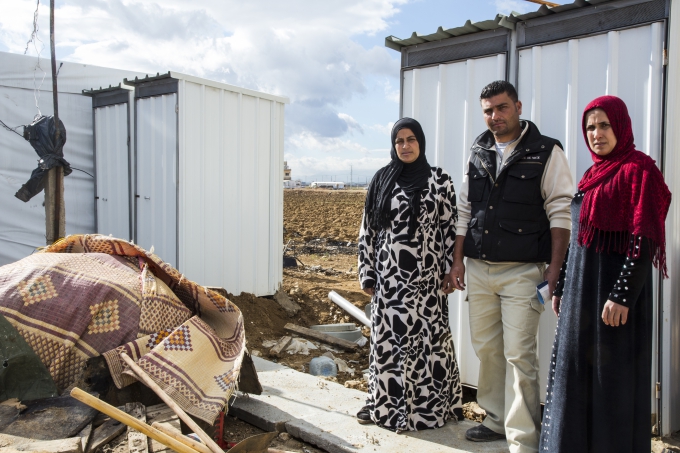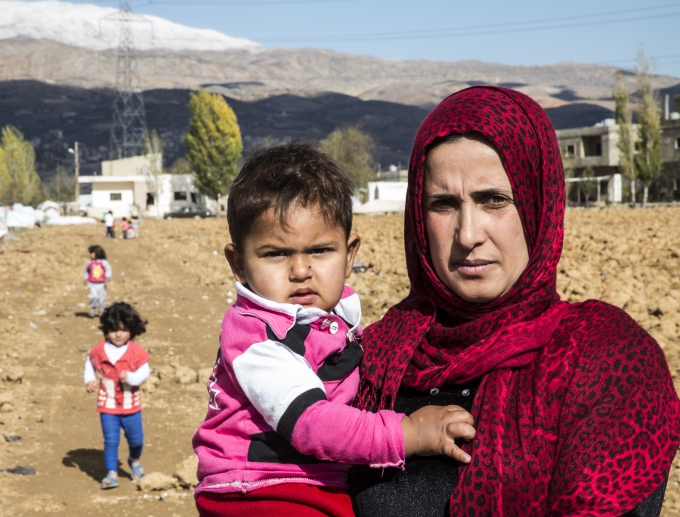The loss that inspired an action

Fleeing their home in Syria’s conflict-hit Homs, Takla and her husband were only worried about protecting their six children. Their escape, however, was soon turned into a heartbreak.
In Lebanon’s Bekaa Valley, the couple hoped they could secure a safe refuge for their children. However, it wasn’t too long before realising that their informal settlement didn’t meet the simplest of needs.
Muddy roads, dirty water and pollution were all part of the new life that Takla and her children had to cope with. The situation worsened with the soaring number of refugees who continued to flock to the settlement. Things started to spiral out of control.
‘’I wasn’t expecting to stay long in Lebanon,’’ revealed Takla.
‘’I thought it was temporary and that we were returning very soon to Syria, but deep inside, when I used to see the dirt on the children, the trash all around the settlement and the life conditions were getting worse, I felt something bad would happen.’’
The random construction of toilets around the settlement led to the contamination of water. Waterborne diseases broke out. Typhoid, among other epidemics, proved a deadly one.
‘’Everyone in this settlement had someone in his family who had typhoid,’’ recalled Takla with a note of despair.
‘’Two of my daughters had typhoid but they were lucky to overcome the illness. I have been told there were 57 cases of typhoid in this settlement.’’
The third of Takla’s daughters to be diagnosed with typhoid succumbed after losing her battle with the disease.
‘’I lost the most precious person in my life, my oldest daughter Zahra,’’ a tearful Takla said.
‘’She was the top of her class. I thought that I was protecting her when I brought her to Lebanon.
‘’I felt guilty when she died, but her death gave me strength to overcome my loss and work harder to stop this illness.’’
The loss that Takla suffered inspired her to take part in Save the Children’s Water Sanitation and Hygiene (WASH) project to raise awareness on the necessity to adapt the right hygiene methods among refugees.

In spite of a slow start, the community began to accept new concepts. Takla felt responsible. She had a sense of obligation. She wanted to tell her story, tell people that only few simple measures are needed to avert a loss like hers.
‘’Firstly, the refugees weren’t responsive [to the hygiene sessions],’’ Takla revealed.
‘’When I started to do the sessions, I received some negative feedbacks, especially when we started to visit their houses to see how they used water and cleaned their tents.
‘’But when the typhoid hit our settlement, and after my daughter’s death, everyone here got frightened. We felt that they became more responsive and cautious.’’
Takla is now conducting regular hygiene sessions with the support of Save the Children. The result has been satisfying, as more people come to realise the importance of protecting their families from what might not only be harmful, but also fateful consequences.
‘’I am definitely working harder now to ensure that no one would experience what I had been through. Thanks to Save the Children, my hopes increased after the hard time I had.’’
Takla is one of around 100 Community Health Promoters selected and trained by Save the Children in the Bekaa Valley. The trainings came in coincidence with the implementation of three infrastructure projects to extend, rehabilitate and construct public water distribution networks that benefited more than 120,000 people across the area.
 Lebanon
Lebanon